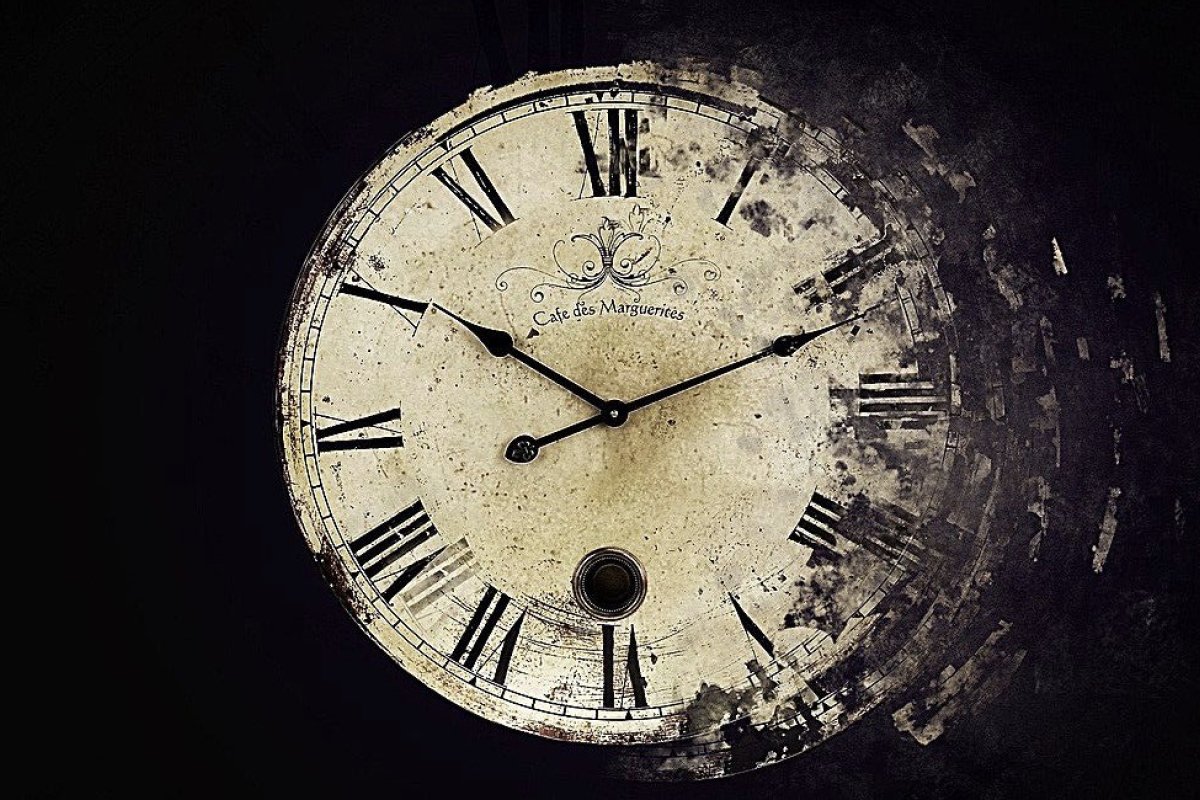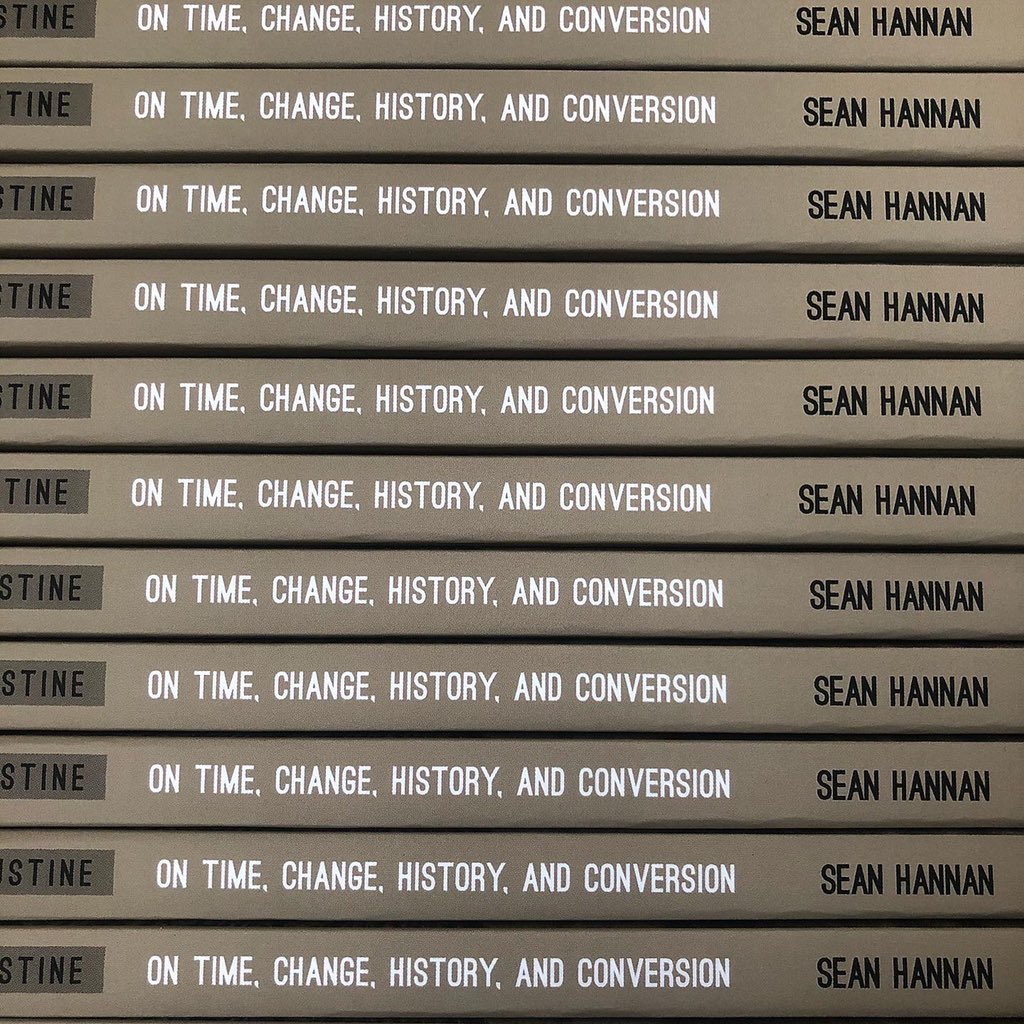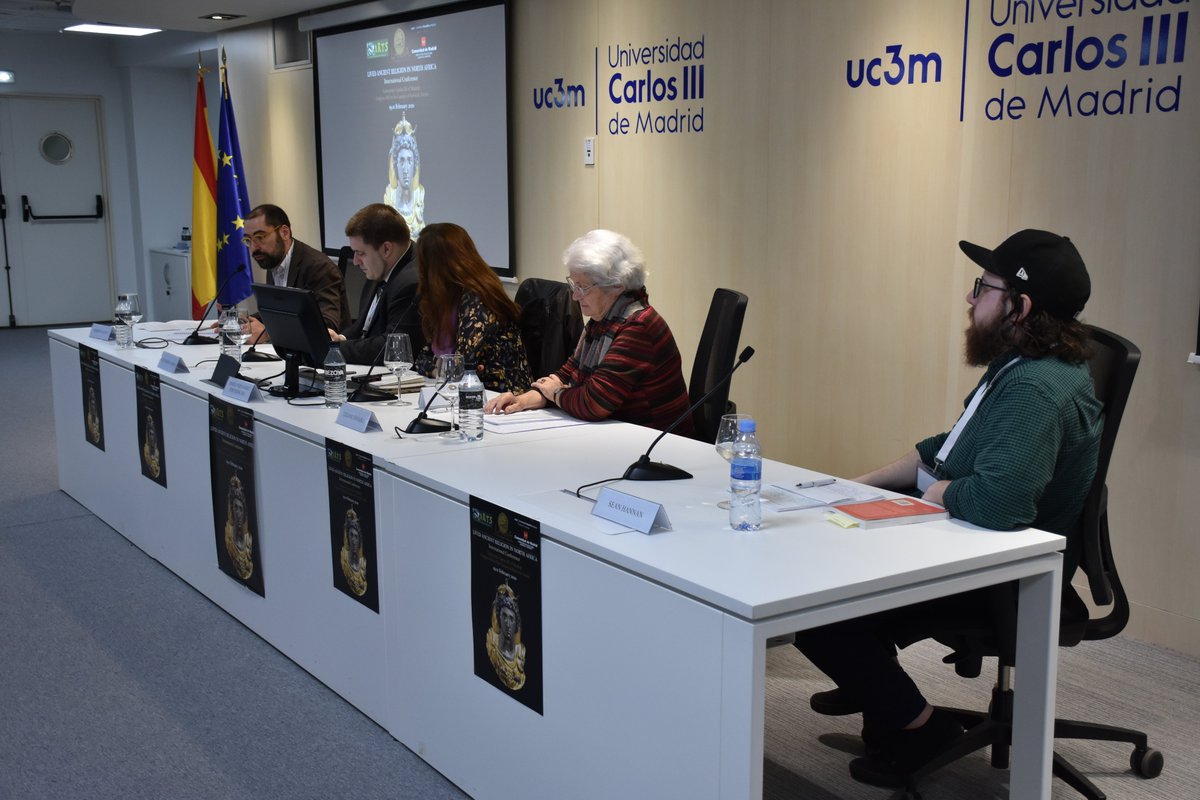
My book for Bloomsbury’s Reading Augustine series has officially been released as of today, April 16, 2020! Entitled On Time, Change, History, & Conversion, it can now be ordered in hardcover, paperback, or e-book formats. Here’s a link to the Bloomsbury site.
I’ll paste here the blurb from the Bloomsbury site, followed by the table of contents, just to offer a basic idea of what the book aims to accomplish:
Sean Hannan offers a new interpretation of Augustine of Hippo’s approach to temporality by contrasting it with contemporary accounts of time drawn from philosophy, political theology, and popular science. Hannan argues that, rather than offering us a deceptively simple roadmap forward, Augustine asks us to face up to the question of time itself before we take on tasks like transforming ourselves and our world.
Augustine discovered that the disorientation we feel in the face of change is a symptom of a deeper problem: namely, that we cannot truly comprehend time, even while it conditions every facet of our lives. This book puts Augustine into creative conversation with contemporary thinkers, from Pierre Hadot and Giorgio Agamben to Steven Pinker and Stephen Hawking, on questions such as the definition of time, the metaphysics of transformation, and the shape of history. The goal is to learn what Augustine can teach us about the nature of temporality and the possibility of change in this temporal world of ours.
Table of Contents
1. The Reality of Time: Between Idealism and Materialism
2. A Brief Theology of Time: From Creation to the Eschaton
3. Enlightenment Never: Eschatology Without Progress
4. Do Not Live in the Now: A Critique of Mindfulness
5. The Instant of Indecision: Possibility of Personal Change
6. The Time Is Not Now: Activism Despite Quietism
Conclusion: The Life’s Future
Reviews
“For Augustine of Hippo, time is a difficult and yet indispensable beloved. Sean Hannan deftly takes us into the soul-stretch that defines Augustine’s ambivalence toward time and complicates the finality of his final things. This book is witty, insightful, and relevant.”
– James Wetzel, Villanova University, USA
“This is one of the most engaging and insightful recent books on Augustine of Hippo. Sean Hannan’s precise treatment unfolds the vast implications of Augustine’s understanding of time.”
– Thomas Clemmons, Catholic University of America, USA
“Sean Hannan sketches Augustine of Hippo’s tensive view of time as indecisive yet activist, distended yet eschatological. This timely book makes a lasting contribution to one of the perennial problems in Augustine scholarship.”
– Willemien Otten, University of Chicago, USA
“Working at the juncture of historical and contemporary thought, Sean Hannan offers a provocative and insightful examination into the enduring philosophical and theological problem of human temporality. This book draws our attention to Augustine of Hippo’s enduring ability to illuminate a range of issues we continue to debate today.”
– Matthew Drever, University of Tulsa, USA












